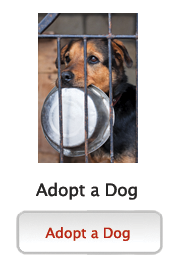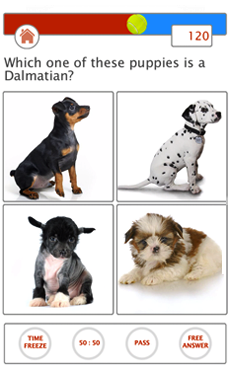Curly Coated Retriever
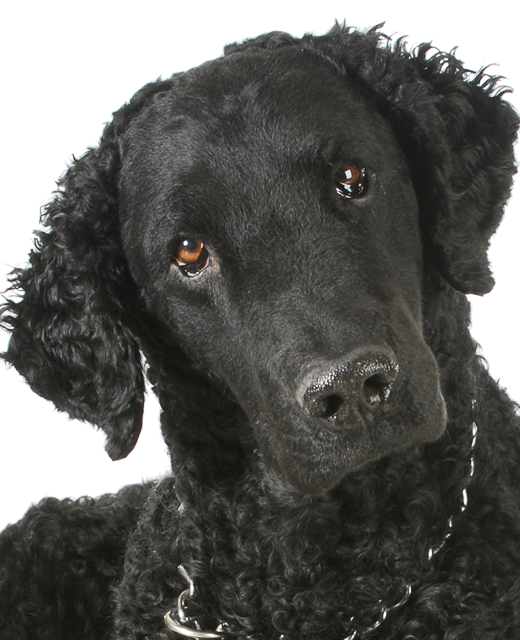
In my own words
Can I get you something? Please I would like to, you see, I am a retriever hence I love to retrieve. I have many more strings to my bow too. I am an incredibly determined dog who has all the makings of an Olympian athlete. I love to swim and love to roam. Whilst us dogs don’t have the Olympics, we do have show rings and I’m quite the competitor!
Take me out of the show ring and I’m not so competitive. When I’m with my family I’m a ball of mushy affection. I am remarkably easygoing and open when it comes to family but sometimes, in the past, strangers made me feel a little uncomfortable. It’s not such a big problem now. After receiving proper training and socialization, I’ve become perfectly sociable and adaptable.
My ideal owner(s)
Families
Singles
Active, sporty types
Hunters & fishermen
What they say about me
Amiable
Clever
Agile
Good swimmer
Sensitive
Please read on, to find out more about me, and whether I will be someone you can be happy with for the next 12 years, or even longer!
Is this Curly-Coated Retriever for you?
Test your knowledge about the Curly-Coated Retriever
Information essential about the Curly Coated Retriever
Kennel Club Group: Gun dog
Category:
Size: Large
Height: Male & Female 25-27 inches (63-69 cm.) Weight: Male & Female 65-80 pounds (29-36 kg.)
Popularity:
It was, and still is, prized as an excellent water retriever, not to mention a cuddly household companion.
Breed History:
Coated Retriever is one of the oldest retriever breeds, but not much is known about its origins. First appearing at an English dog show in the 19th century, the Curly Coated Retriever is believed to have derived from the ancient English Water Spaniel, the St. John's Newfoundland and the Poodle. The Curly Coated Retriever is an excellent hunting companion and gun dog, waterfowl retriever and upland game hunter, with a gentle mouth. They were often used to hunt duck and quail. The breed is pretty rare inside the USA but is more popular in Australia and New Zealand. The first exports to America were in 1907. The Curly Coated Retriever was recognised by the American Kennel Club in 1924. This breed may take some effort to find. Some of the Curly's talents are hunting, tracking, retrieving, watchdog, guarding, agility, and competitive obedience
Character:
Curly-Coated Retrievers were born to frolic in the wild and help people. These highly intelligent creatures need lots of love, attention, fresh air and “tasks” to keep them mentally and physically healthy. These are bold, friendly, self-confident dogs who may appear aloof with strangers but will give years of loyalty and devotion to the immediate family. Curly-Coated Retrievers make an ideal partner for an active, outdoor-oriented person who also wants a loyal family companion. They are reasonably patient with children and will get along with other dogs and household animals. This breed loves to swim. They make good therapy dogs. They make good watch and even guard dogs if they see the family is threatened.
Temperament:
The Curly Coated Retriever is easy to get along with, loyal and eager to please. Be sure to thoroughly obedience train them starting from puppy-hood. They have been used in competitive obedience and agility, but are not as predictable as some other breeds. This is not a breed for everyone. They do not fully mature until they are about three years old and can be wilful with meek owners. Make sure you are the dogs firm, but confident, consistent pack leader to bring out the best in their temperament. Proper canine to human communication is essential. The Curly Coated Retriever is affectionate, loving, and excellent with children. The more mental and physical exercise you give them the calmer they will be. Socialize them well with people and other pets at an early age. Without proper balance in their life they can be reserved or timid with strangers.
Conformation:
The head should be wedge-shaped in both front and side profiles with a slight stop. The eyes should be oval-shaped, large but not prominent, dark brown in blacks and tones of brown to blend with the coat in the livers. The ears should be rather small and set slightly above the level of the eye, lying close to the head and covered with small curls. The nose should black in blacks and brown in livers. The jaws should be strong with a complete scissor bite. The medium length neck should be strong and slightly arched, free from throatiness and flow freely into well laid back, muscular shoulders. The forelegs should be straight with strong pasterns and set well under the body. The chest should be deep with well-sprung ribs and a strong and level top line, with a slight tuck up to the flanks. The hindquarters should be strong and muscular with well let down hocks. The feet should be round and tight with well-arched toes. The tail should be set level with the top line and reach approximately to the hock and carried straight on a level with the top line when moving. Dewclaws are usually removed. The water-resistant coat is very distinct coat with small, tight, curls that cover every part of the body accept for the forehead, face, front of forelegs, and feet. The coat protects the dog from brambles and icy waters. Coat colours come in black or liver. The coat may have a small white patch, but it is not desired in the show ring
Colour:
Curly Coats are either solid black or solid liver
Training:
Very intelligent dogs, Curly’s have a great learning ability. However, they do have minds of their own and therefore training must be a challenge and varied to keep them becoming bored and losing interest.
Care:
This breeds feeding requirements depends on the type and quality of food used. Care must be taken to avoid the possibility of Gastric Torsion (Bloat), which Curlies (like all large and deep chest dogs) are susceptible to. Grooming should be administered once a week. Its beautiful coat is fairly easy to groom and only require occasional bathing. Never use a brush or a comb on a Curly as this will flatten the curls. They do shed: dogs once a year, bitches after their seasons and it is at this time that a bath should be given to get rid of the dead hair. Thereafter wetting them once a week will encourage loose hair to drop off and tighten the curls. If the coat becomes too long, it can be trimmed with straight scissors.
The Curly Coated Retriever is not recommended for apartment life. They do best with at least a large yard. An eager and tireless land and (especially) water retriever outdoors, but a calm companion in-doors. Curlies need to be part of the family and not left alone outside in the yard all day.
The Curly Coated Retriever is a high-energy, but also very intelligent dog that needs a lot of exercise, both mental and physical. Preferably involving swimming and retrieving. They need to be taken on a daily basis for long brisk walk, or jog, where the dog is made to heel beside or behind the human holding the lead, as in a dog's mind the leader leads the way and that leader needs to be the humans.
Health:
Common health issues in the curly coated retriever are hip dysplasia and heart problems. Epilepsy has also occurred in the breed: purchasers should check with the breeder, whether there are any known cases in the breeding of the litter. Gastric Torsion (Bloat) can also be a problem (as with all deep chest breeds). Curly coated retrievers have an average life span of 9 - 15 years.
You may also like:
If you like Curly Coated Retrievers, you may be interested in breeds of the same size »

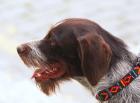

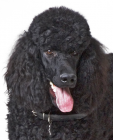
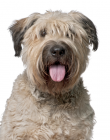
If you like Curly Coated Retrievers, you may like other breeds with similar characteristics »

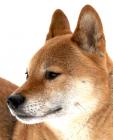
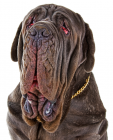
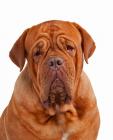

Advice on choosing your breed »
Find an animal shelter or rescue home where a Curly Coated Retriever is waiting for a new home »
The following grid gives a fast track review, which covers all breeds. You can apply it to help you decide if a Curly is suitable for you, the environment where you live, your personality and your lifestyle. On the grid, 1= strongly disagree, and 5= strongly agree. For example, if you are looking for a dog to make a good walking companion, look down the list under ‘Activities’, and you will see that Curlies have lots of energy and are strong walkers, scoring 5. If you want a dog that is good for country living, look under ‘Environment’ and you will see that Curlies are suited to country living, scoring 5. You might like to save or print off this section and keep it for reference while you check some other breeds before making your final choice.
Be the first to rate this breed »
|
*PLEASE NOTE: All our breed profiles are general, and all dogs are individuals. Always talk to the breeders and meet the owners you are buying from. Try to meet the dog and its parents if it is a puppy in their home environment.









